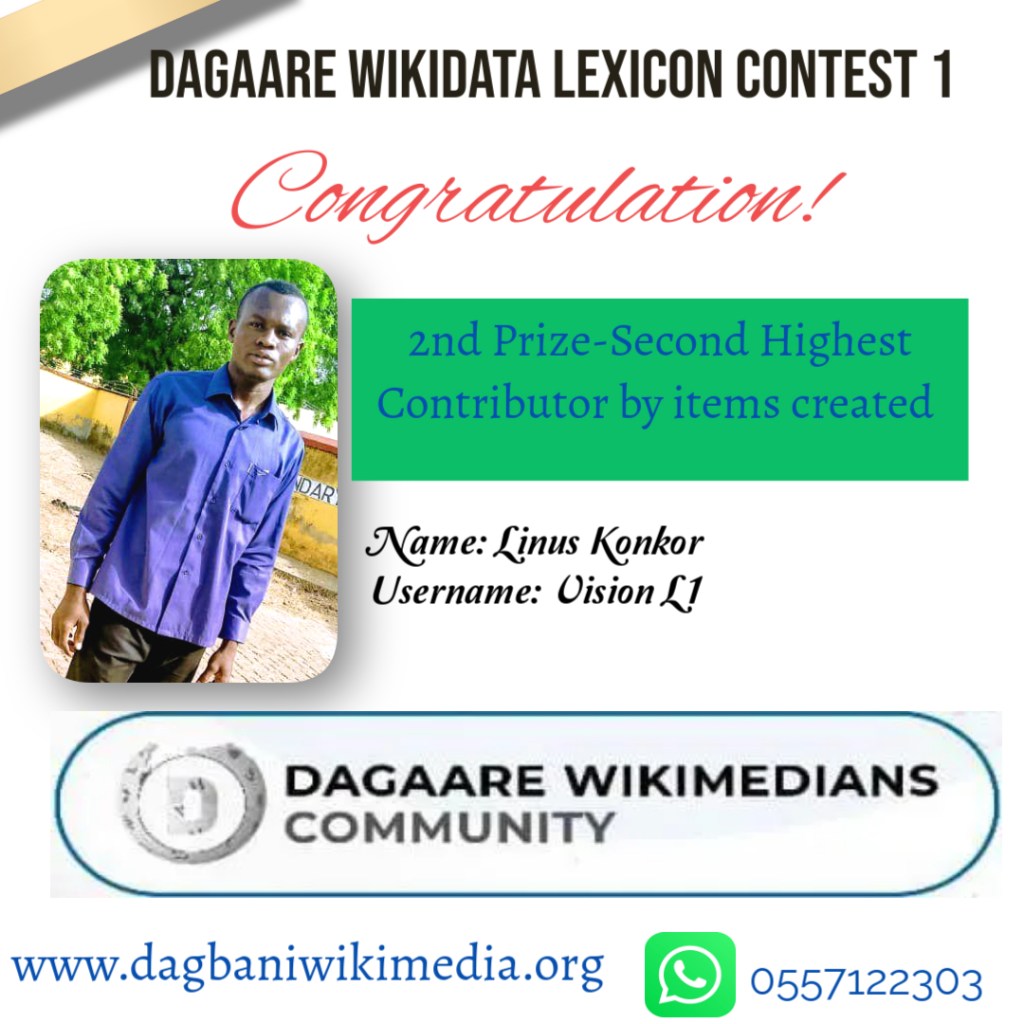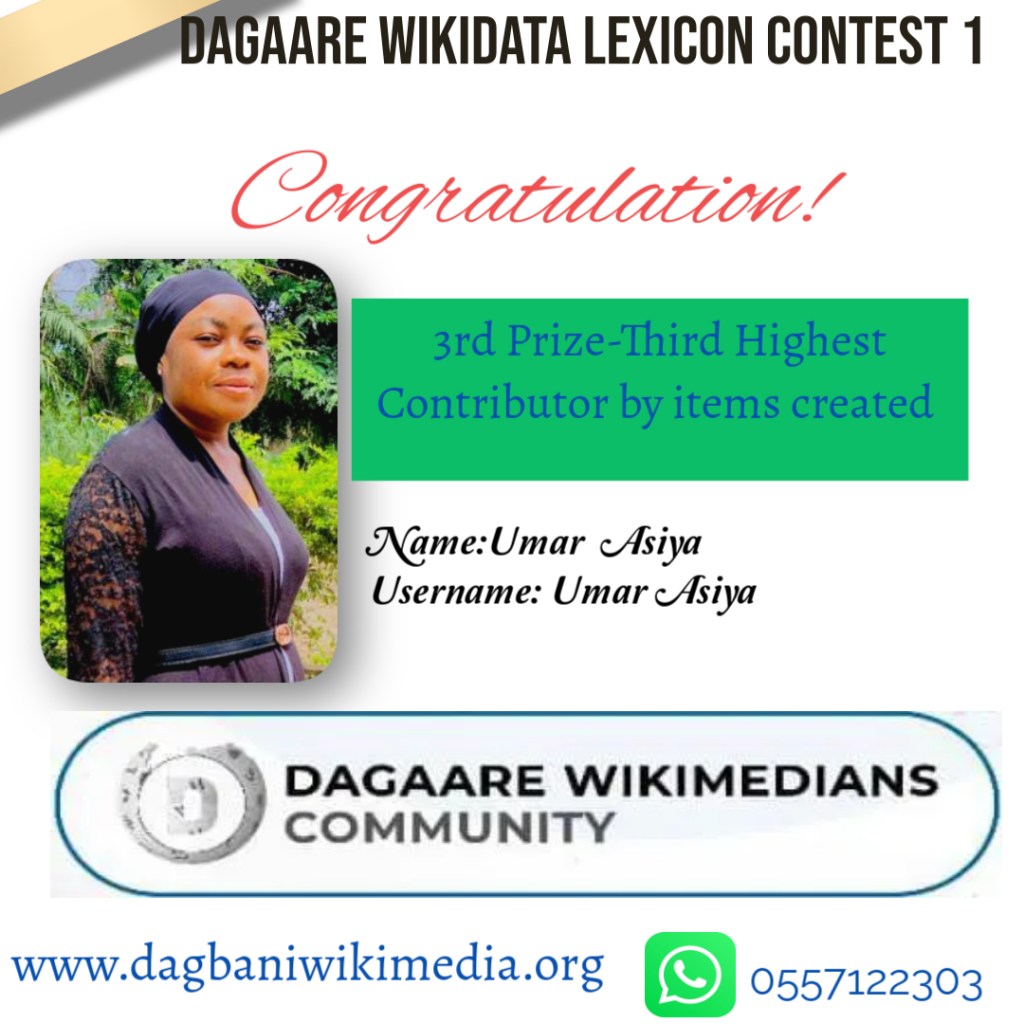Introduction

The Dagaare Wikimedia Community recently concluded a successful Wikidata lexicon contest. This community-driven initiative aimed to enrich the Dagaare language representation on Wikidata by encouraging participants to translate words into Dagaare and create corresponding lexemes. This was a project funded and supported by the Dagbani Wikimedians User Group, its unique initiative for individuals from not only the Dagbani Wikimedians User Group but all its sister’s communities to carry on projects that leverage the core objectives of the Wikimedia Foundation.
Achievements
There was significant Wikidata Lexical Growth. A total of 761 items were edited, including both new and existing lexemes. Among these items, 663 entirely new lexemes were added to Wikidata, significantly expanding the Dagaare language on the wikidata projects.
This project also encouraged Community Engagement. The contest fostered active participation and knowledge sharing among thirteen participants, including both experienced editors and newcomers. Online Weekly engagement series were organized throughout the contest period to ensure that no editor was left out.
Contest Mechanics
Participants earned points for each statement added to a lexeme, with deductions for duplicating existing lexemes or statements.
Active participants received data allowances, awarded based on the criteria, which included the 1st prize for the Highest Contributor by items created, the 2nd prize for the Second Highest Contributor by items added, the 3rd prize for the Third Highest Contributor items added, and the Top Female Contributor by items added. In the writing contest, Username: ANTHONY DERY received the 1st prize for Highest Contributor by items added, followed by Username: Vision L1 in 2nd place and Username: Umar Asiya in 3rd place and recognized as the Top Female Contributor.



Impact
This contest has significantly contributed to the preservation and documentation of the Dagaare language on a global platform. The newly created lexemes provide valuable linguistic data for researchers, educators, and language learners worldwide.

Can you help us translate this article?
In order for this article to reach as many people as possible we would like your help. Can you translate this article to get the message out?
Start translation